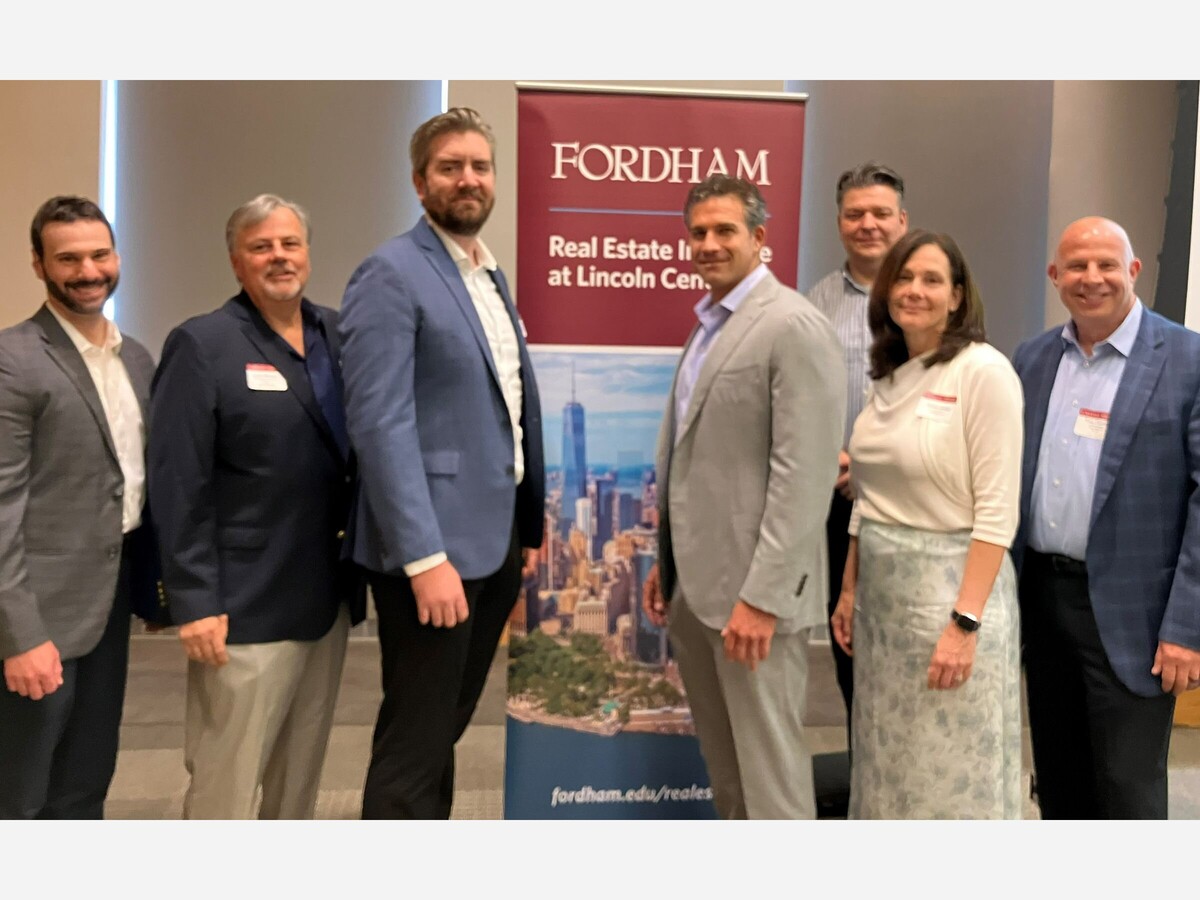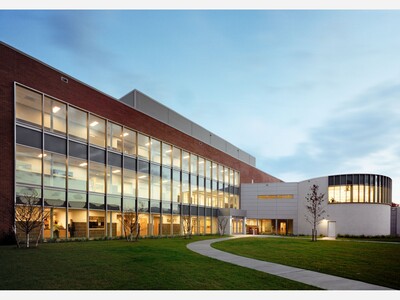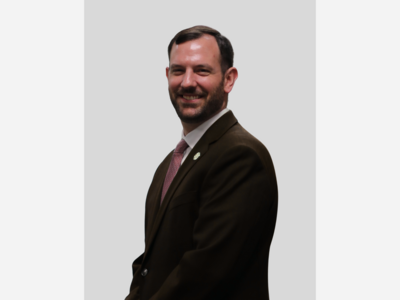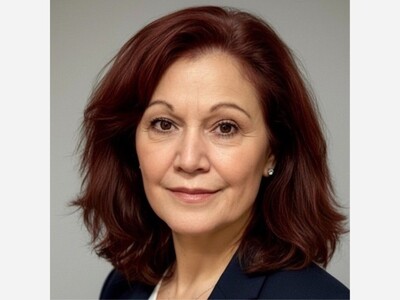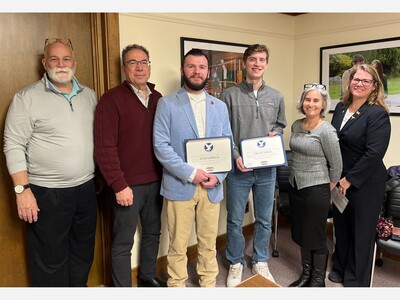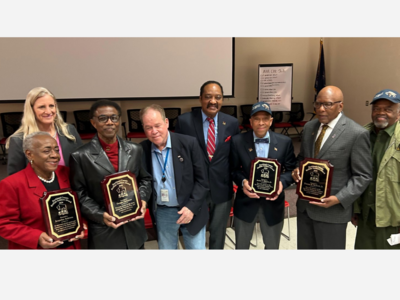Industry Leaders Weigh in on Interest Rates, Inflation and Impact on Business and Real Estate
Top minds in real estate, finance and economics set the stage for an engaging and in-depth discussion on how rising interest rates, historic inflation and global economic uncertainty are impacting business and commercial real estate regionally and in key markets nationwide at a July 26 conference in New York City hosted by the Fordham Real Estate Institute.
Hundreds of business and industry professionals attended “Rising Interest Rates and the Impact on Commercial Real Estate,” a panel discussion and networking event at Fordham University’s School of Law that was offered both in person and virtually. The panel was moderated by Tony Fineman, Senior Managing Director at ACORE Capital, one of the largest investment managers in commercial real estate lending. The panel featured Andrea Balkan, Managing Partner at Brookfield, a global owner and operator of renewable power, infrastructure, real estate, private equity, credit and insurance solutions; Adam Doneger, Vice Chairman, Cushman & Wakefield, a leading global real estate services firm; and Ryan Severino, Chief Economist at JLL, a leading professional services firm specializing in real estate and investment management.
Fineman touched off the discussion with a recap of market conditions over the last few months. “The indices that we base our loans on, and that the market bases cap (capitalization) rates on, have risen a couple hundred basis points,” he said. “Spreads have risen somewhere between 75 and 150 basis points.”
The “bottom line,” Fineman said, is the cost of borrowing is much higher and he asked the panel to weigh in on how this is impacting their business and the market, overall.
“What we’re seeing right now is a market that is very much in flux … in a drastically rising interest rate environment,” said Balkan, of Brookfield. “We are still active, we are still lending, but we’re having to look at every deal with a new lens and say, ‘This deal has to cover its debt service at the forward curve.’ So, it is resulting in our changing terms on deals, which we haven’t done in the 20 years I’ve been there.”
The conversation focused on a number of economic and real estate topics, from global uncertainty and fears of a recession, to labor shortages and the war in Ukraine, to housing affordability, supply and demand, and converting office buildings into residential spaces.
“What we’ve seen over the last couple of months has been unprecedented in terms of transactions being sidelined due to the rise in interest rates, coupled with the war, and overall economic uncertainty” said Doneger, of Cushman & Wakefield. “If you break it down by asset class, the office business – the number one seller over the last 20 years in New York City – has slowed significantly. Select office trades have been put on pause mainly due to the evaporation of financing across the office spectrum. When financing stops, equity is going to stop alongside it.”
Doneger pointed to investment opportunities in multi-family housing, particularly as demand for rental apartments in New York City outpaces supply. “Multi-family fundamentals and sales are on a tear … agencies are still lending and aggressively quoting. We’re having a ton of success in our multi-family practice.”
Severino, of JLL, talked about how the pandemic and a structural labor shortage are compounding the challenges office building owners and employers are facing in a changing work environment.
“If we’re going to get people back into the office, then employers are increasingly going to look at the office space as part of attracting and retaining talent,” Severino said. “Not just compensation, flexibility, but what is the office space actually like? Is it conducive to being productive, a place you want to come to, especially if you have an onerous commute? That’s very different from prior to the pandemic.”
Fineman wrapped up with trends to watch for in the coming years and which markets will fare better than others. The panel agreed cities like New York and Boston, with strong medical and educational institutions, are well-positioned for growth.
Doneger pointed to the growing demand for spaces to accommodate the life sciences boom. “Most of our clients that are in the office business have pivoted into the life sciences space and they’ve all made a home for themselves. That industry, in particular, has a tremendous amount of room and it all ties into cities that have the medical and educational resources.”
Balkan said Brookfield’s lending strategy “in an uncertain world” will be focusing on class A assets. “We think there’s still great opportunities and we’re going to continue to lend and invest, but we’re going to be lending on high-quality assets that are going to trade below intrinsic value because other people are sitting on the sidelines.”
Severino cited “massive ramifications” from a global labor shortage “not just for the overall economy, but to some of the larger questions such as where people want to work, where they want to live, and what kind of industries that they want to be in.”
“It is going to get objectively interesting in the economy in the real estate markets over the next 10, 15, 20 years as we go from an era of labor abundance to labor scarcity,” Severino said.
The event included an introduction from Lou Mirando, CEO of Streamline CRE Funding Group and co-chairman of the Fordham REI’s Executive Advisory Council, and an update on Fordham REI’s Scholarship 250 program by council co-Chairman Ryan O’Connor, CEO of Clinton Management.
“Too often those new to or without an existing network within the real estate industry may be on the outside looking in on exciting career prospects,” O’Connor said. “Scholarship 250 is uniquely positioned to aid prospective students with a truly diverse set of programs for all experience levels, and to ignite and accelerate the career paths of the real estate visionaries of tomorrow.”
The event was part of Fordham’s Visionary Series CCL, a five-year campaign tied to the 250th anniversary of the United States in 2026. A recording of the event can be found here:
For information about REI, the Executive Advisory Council and Scholarship 250, click here.
ABOUT THE FORDHAM REAL ESTATE INSTITUTE
The Fordham Real Estate Institute currently offers a Master of Science in Real Estate, a Master of Science in Real Estate Development, Master of Science in Construction Management, advanced graduate certificates in real estate finance, development, management and construction management, a Bachelor of Science in Real Estate, and a comprehensive array of professional certificates in real estate and construction at its campuses in Manhattan and West Harrison, N.Y. The programs are developed and taught by leading industry practitioners and are centered on imparting real-world professional skill sets. Flexibility and convenience are program hallmarks as classes can be taken in-person, online, and at various paces. REI is a part of Fordham’s School of Professional and Continuing Studies. For more information, visit www.fordham.edu/realestate.
Photo Caption: Fordham University’s Real Estate Institute hosted a conference, “Rising Interest Rates and the Impact on Commercial Real Estate,” July 26, 2022 in New York City. Pictured, from left: panelist Ryan Severino, Chief Economist at JLL; Lou Mirando, CEO of Streamline CRE Funding Group and co-chairman of the Fordham REI’s Executive Advisory Council; Ryan O’Connor, president and CEO of Clinton Management and co-chairman of the Fordham REI’s Executive Advisory Council; Adam Doneger, Vice Chairman, Cushman & Wakefield; Bob Morgenstern, director of the Fordham Real Estate Institute at Lincoln Center; Andrea Balkan, Managing Partner/Real Estate Group at Brookfield; and Tony Fineman, Senior Managing Director and Co-Head of National Originations at ACORE Capital.

